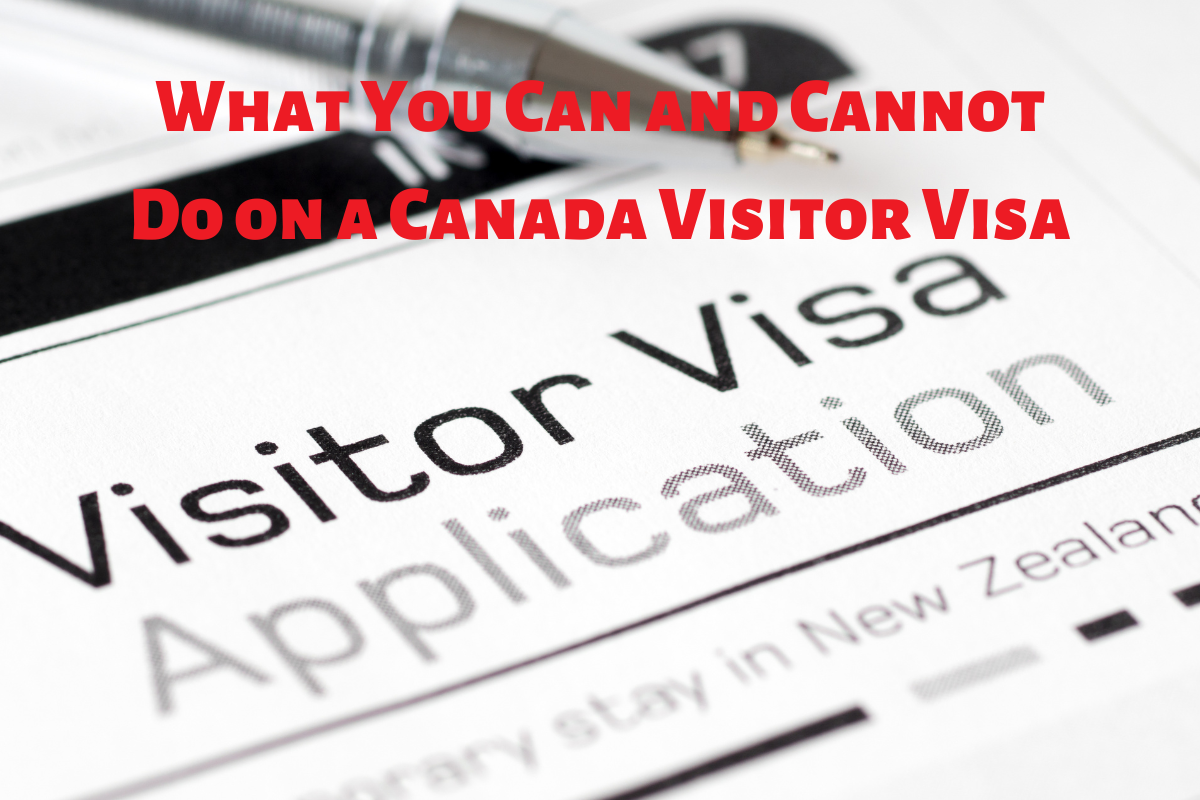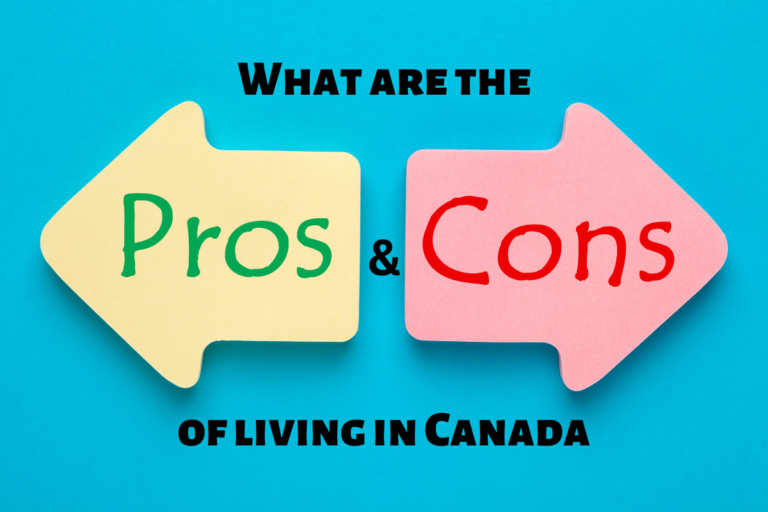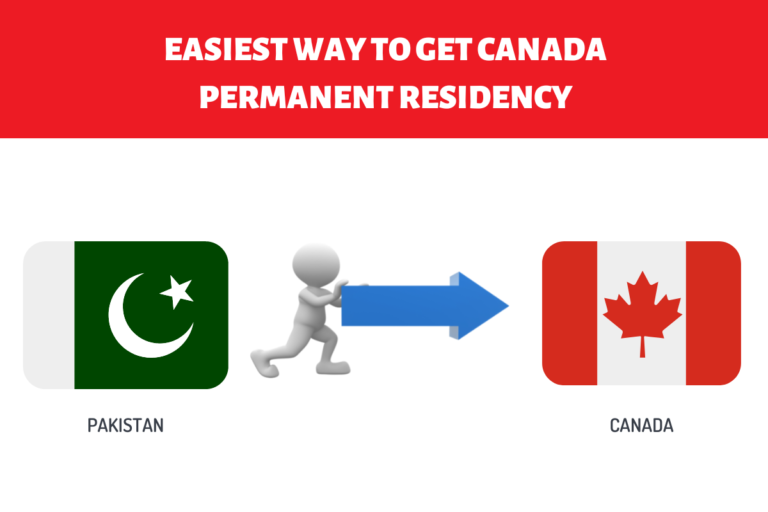What You Can and Cannot Do on a Canada Visitor Visa
Are you planning a trip to Canada and wondering what you can and cannot do with a visitor visa? If so, this article will provide you with valuable information on the limitations and restrictions of a Canada Visitor Visa, also known as a Temporary Resident Visa (TRV).
What is a Canada Visitor Visa?
A Canada visitor visa is a document issued by the Canadian government that allows foreign nationals to enter Canada for a temporary period. It is also known as a temporary resident visa (TRV) and is a type of non-immigrant visa.
The Canada visitor visa is required for citizens of countries that are not visa-exempt or do not have a visa-waiver agreement with Canada. If you are planning to visit Canada as a tourist, for business, to visit family or friends, or for any other purpose, you may need to apply for a visitor visa before you can enter Canada.
The visitor visa is valid for a specific period, usually up to six months, and allows you to enter Canada multiple times during that period. However, the actual length of stay is determined by the Canada Border Services Agency (CBSA) officer at the port of entry when you arrive in Canada.
To apply for a Canada visitor visa, you’ll need to fill out an application form and provide supporting documents, such as a valid passport, proof of financial support, and a letter of invitation (if applicable). You may also need to provide biometrics (fingerprints and a photo) as part of the application process.
The processing time for a visitor visa application varies depending on the country you’re applying from and can range from a few days to several weeks. Once your application is approved, the visa will be stamped in your passport, and you’ll be able to travel to Canada.
It’s important to note that a Canada visitor visa does not allow you to work or study in Canada without a separate work or study permit. If you plan to work or study in Canada, you’ll need to apply for the appropriate permission before you arrive in Canada.
Overall, a Canada visitor visa is an essential document for anyone who wants to visit Canada for a temporary period. It allows you to explore the beauty of Canada and experience its unique culture, but it’s important to abide by the conditions of your visa and follow Canadian laws while you’re in the country.
What You Can Do with a Canada Visitor Visa
-
Visit National Parks
Canada is home to some of the most stunning national parks in the world, and with a visitor visa, you can explore them all. From Banff National Park in Alberta to Gros Morne National Park in Newfoundland, Canada’s national parks offer breathtaking scenery, wildlife sightings, and endless outdoor activities.
-
Attend a Festival
Canada is a country that loves to celebrate, and you’ll find festivals taking place all year round. From the Calgary Stampede to the Toronto International Film Festival, there’s always something to see and do. With a visitor visa, you’ll have the opportunity to immerse yourself in Canadian culture and experience these festivals first-hand.
-
Explore Canadian Cities
Canada has some of the most vibrant cities in the world, and with a visitor visa, you can explore them all. From Toronto to Vancouver, Montreal to Halifax, each city has its unique character and attractions. You can explore historic landmarks, cultural institutions, and world-class restaurants.
-
Visit Family and Friends
If you have family or friends living in Canada, a visitor visa allows you to visit them and spend time together. You can experience Canadian life from a local’s perspective, and get a deeper understanding of the country’s culture and traditions.
-
Attend Business Meetings
If you’re a business professional, a visitor visa allows you to attend meetings and conferences in Canada. You can network with other professionals, learn about the Canadian business environment, and explore potential business opportunities.
-
Study or Take Courses
Canada has some of the best educational institutions in the world, and with a visitor visa, you can enroll in courses or attend seminars at these institutions. Whether you’re interested in learning a new skill, improving your language abilities, or gaining new knowledge, Canada offers a wide range of educational opportunities.
-
Volunteer
Canada has a strong tradition of volunteerism, and with a visitor visa, you can join in on this tradition. You can volunteer at local organizations, participate in community events, and give back to the community in meaningful ways.
-
Work Temporarily
With a visitor visa, you can work in Canada for a temporary period. You can work as a tourist guide, seasonal worker, or in other temporary jobs. This allows you to earn money while experiencing Canadian culture and lifestyle.
-
Medical Treatment
If you require medical treatment that’s not available in your home country, a visitor visa allows you to travel to Canada to receive the necessary medical care. Canada has a world-class healthcare system, and you can receive treatment from some of the best medical professionals in the world.
-
Transit through Canada
If you’re traveling to another country and your flight passes through Canada, a visitor visa allows you to leave the airport and explore the city. You can take a short tour, visit a museum, or grab a bite to eat before continuing on your journey.
What You Cannot Do with a Canada Visitor Visa
-
Work Without a Work Permit
While a visitor visa allows you to enter Canada for a temporary period, it does not allow you to work without a work permit. If you plan to work in Canada, you’ll need to apply for a work permit. There are several types of work permits, including employer-specific work permits, open work permits, and International Experience Canada (IEC) work permits.
-
Study Without a Study Permit
If you plan to study in Canada, you’ll need a study permit. A visitor visa does not allow you to study in Canada without a study permit. To apply for a study permit, you’ll need to have been accepted by a Canadian educational institution, and you’ll need to prove that you have enough money to support yourself while you’re studying in Canada.
-
Overstay Your Welcome
A visitor visa allows you to stay in Canada for a temporary period, usually up to six months. If you overstay your welcome, you may be barred from entering Canada again in the future. If you need to extend your stay in Canada, you’ll need to apply for an extension of your visitor visa.
-
Work for an Unauthorized Employer
If you have a work permit, you’ll be authorized to work for a specific employer in Canada. If you work for an employer who is not authorized by your work permit, you could violate Canadian immigration laws.
-
Commit a Crime
If you commit a crime in Canada, you could be deported and barred from entering Canada again in the future. Even minor offenses can result in deportation, so it’s important to obey Canadian laws while you’re in the country.
-
Engage in Criminal or Terrorist Activities
If you engage in criminal or terrorist activities while you’re in Canada, you could be arrested, charged, and prosecuted. Canada takes its national security very seriously, and any activity that threatens the safety of Canadians will be dealt with harshly.
-
Misrepresent Your Intentions
When you apply for a visitor visa, you’ll need to provide information about your intentions in Canada. If you misrepresent your intentions, you could be barred from entering Canada again in the future. It’s important to be honest about your intentions when you apply for a visitor visa.
-
Stay in Canada Beyond Your Authorized Stay
If you stay in Canada beyond your authorized stay, you could be barred from entering Canada again in the future. It’s important to apply for an extension of your visitor visa if you need to stay in Canada longer than your authorized stay.
-
Violate Canadian Immigration Laws
If you violate Canadian immigration laws, you could be barred from entering Canada again in the future. Canadian immigration laws are strict, and any violation of these laws can have serious consequences.
-
Work in a Job That Endangers Public Health or Safety
If you work in a job that endangers public health or safety, you could violate Canadian immigration laws. Canada takes the health and safety of its citizens very seriously, and any activity that threatens public health or safety will be dealt with harshly.
Conclusion
In conclusion, a Canada Visitor Visa allows you to engage in a variety of activities during your stay in Canada, such as visiting family and friends, attending business meetings, engaging in tourism activities, and studying or receiving medical treatment. However, there are also restrictions on what you cannot do, such as working for a Canadian employer, staying longer than your authorized period of stay, engaging in criminal activities, attending school without a study permit, or using public health services except in the case of an emergency. It is important to understand and comply with the conditions of your visitor visa to avoid any issues during your stay in Canada.




